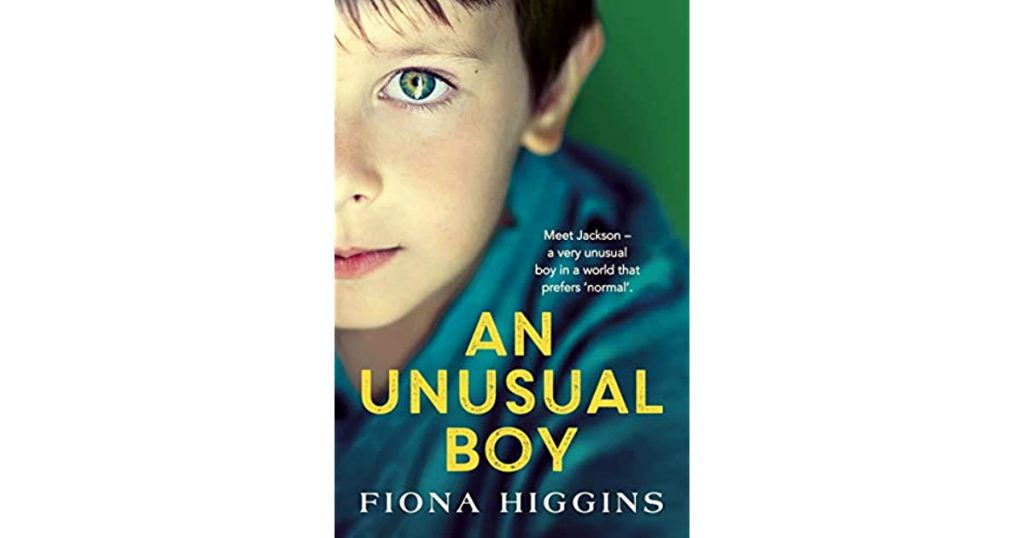An Unusual Boy, Fiona Higgins, Australia, 2020

As with most of Fiona’s books, An Unusual Boy grapples with a contemporary issue: in this case, sexual abuse of children by children. Despite the confronting theme, the book is actually a ‘feel-good’ book, where everything eventually works out for the better. The situation at the end of the book is decidedly better than it is at the beginning.
Whether Fiona has directed her book especially at young adults (older teenagers), or not, is difficult to say. The topic is probably more suited to adults, but many of the situations in the book would resonate with a YA audience. Notwithstanding the existence of a target group (or not), Fiona has done a remarkably good job of tackling a very difficult subject. It would be nice to feel that this book might impress on readers (young and/or old) the importance of honesty and the need to be kind and thoughtful to others. It also makes the essential point that we are all the same, even if some of us appear to be different. An Unusual Boy manages to present the focal point of the book – sexual abuse by minors – in a manner that affirms the seriousness without creating too many difficult, confronting situations and images.

Jackson, who is somewhere on the spectrum and who has a number of quaint characteristics such as phoning his deceased grandmother by using his shoe, has been particularly well portrayed, and he carries the entire book. Although his two siblings, Milla and Ruby, are not much more than sketches of fourteen-year-old first love and nine-year-old ‘Look at me! I’m wonderful’, they both act as perfect foils for their brother. The mother, Julia, more or less on her own with the three children and, at times (understandably), completely out of her depth, tends to waver between being unintentionally irritating and unintentionally inane; however, all things considered, I feel that anyone in Julia’s position would probably be wavering in a very similar fashion. The father, Andy, has such a small part to play he is almost like a non-character.
I am not sure if it is possible to combine this delightful young, on-the-spectrum child and the focus of the book and call the book An Unusual Boy. Jackson may be ‘unusual’ compared with the ‘normal’ people around him, but it is not necessarily the fact of his being ‘unusual’ that lands him in the mess that forms the body of the book. I feel that ‘somewhere-on-the-spectrum’ Jackson is not the only eleven-year-old who would have reacted with such ignorance to a situation involving possible sexual abuse. I would like to think that there are still eleven-year-olds ‘out there’ who are sufficiently innocent to be able to remain completely unaware of what an adult means when he/she asks, ‘Did you touch her?’ It is a really great title but possibly not the truest description of the book itself.

This is definitely an important book, presented in an appealing and easy-to-read manner. Whether it is still possible for young children in the twenty-first century to remain relatively innocent or whether the majority of them are likely to be corrupted by a media and an entertainment industry that is difficult to avoid (which is a point brought out in the book), it is crucial that they are given definite signposts and that they learn to discern right from wrong. Not always the easiest thing to accomplish when the signposts are more than often being manipulated by unscrupulous adults.